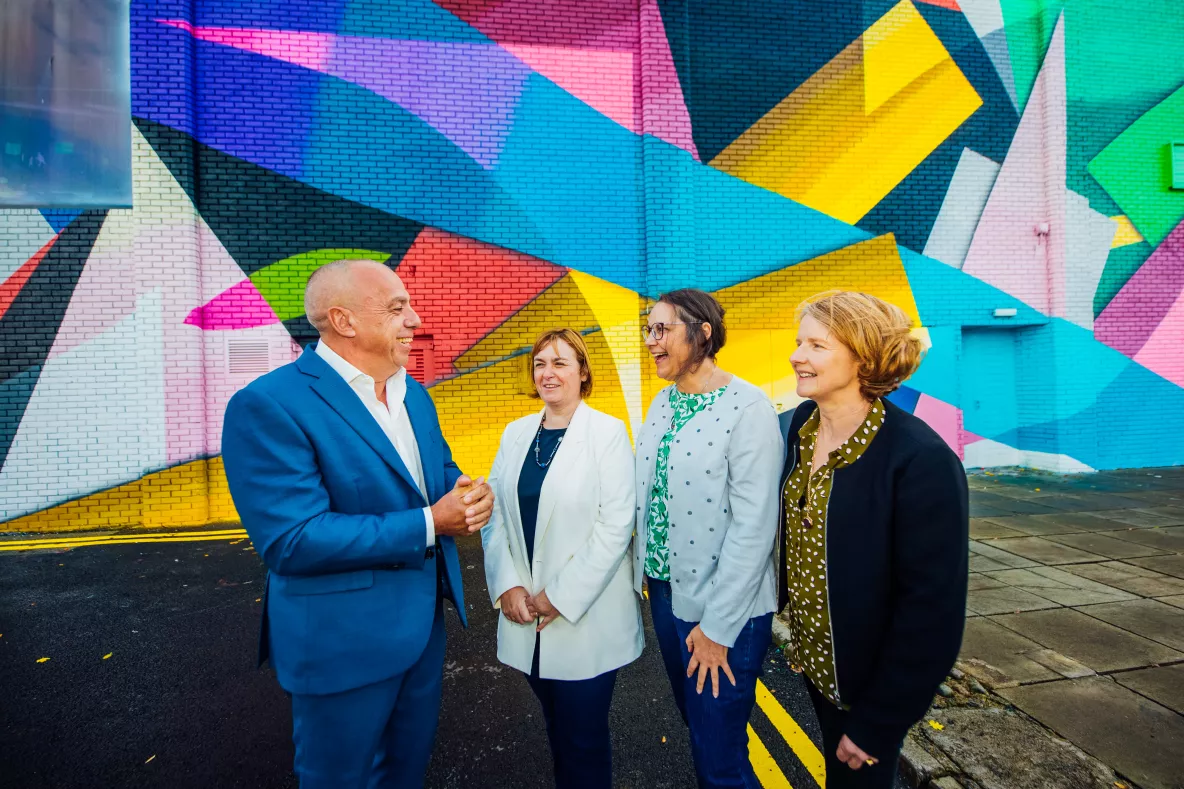
On the 2nd and 3rd November 2022, University of Limerick's UL@Work hosted two-day conference that challenged the accepted norms of higher education in Ireland, how workplace-based education can benefit both the employer and the employee and how the traditional university degree is not the only model for university education.
Prof. Shane Kilcommins, Provost and Deputy President, was delighted to open day one of the conference, which took place in the UL City Centre campus and to provide some introductory remarks on day two, which was held in the Analog Devices Building UL.
The conference featured a presentation by Professor Ian Solomonides, former Deputy Vice-Chancellor at Victoria University, describing how he led the transformation from traditional to block teaching and the benefits that this delivered to both students and the university. During the afternoon a series of topics including Digital Skills, Microcredentials, Bespoke Upskilling, Dual Education, and the future of the university degree were explored.
The conference explored a range of topics including the dual-track degrees popular in Germany. Sessions included Professor Jeff Dusek, Baldwin Wallace University USA, describing innovations in engineering curriculum design that support the next generation of problem solvers; Professor Minna Isomursu, University of Oulu, Finland, examining diversity on higher education; and Professor Gilly Salmon, Education Alchemists and Professor Ale Armellini, University of Portsmouth explaining the five steps to success when designing programmes for work-based learners.
The UL experience in transforming education was addressed by Dr Sarah Kieran, Kemmy Business School, Dr Michael Hennessy, Flexible Learning Unit, Prof Norma Bargary, Department of Mathematics and Statistics, and Prof Tiziana Margaria Computer Science and Information Systems. While the current and past UL students described their learning experiences.
An engaging session on the future of Microcredentials was chaired by Fiona Keogh from Analog Devices with contributions from Professor Megan Benke, SUNY Empire State College, Professor Josephine Lang, University of Melbourne, and Professor Martin Margala, University of Louisiana at Lafayette.
The closing debate was chaired by Professor Ann Ledwith with William Beausang, Department of Further and Higher Education, Research, Innovation and Science and Andrew Finn, Fastrack into Information Technology (FIT) supporting the motion that ‘this house believes that the Traditional University Degree is a relic of a bygone age’. Dr Carolina Alves, Girton College, Cambridge and Professor Stephen Kinsella, Kemmy Business School arguing against. The final outcome was an over whelming for support for – One size does not fit all.
Professor Ann Ledwith, Executive Dean of Graduate & Professional Studies, University of Limerick, said:
“Some key themes that emerged from the conference are the importance of risk taking in higher education. We should not be persuaded by arguments like, ‘we have always done it this way’ or ‘that is not how I was taught’. We should be willing to embrace change but at the same time we need to sustain and protect good ideas and pedagogies that have been proven to work well with learners. The importance of assessment was also highlighted, this drives so much of both student and academic behaviour.
Professor Martin Margala, Director of the School of Computing, Information and Communications University of Louisiana at Lafayette predicted that many Irish Universities will have to “adapt or move aside” if they wish to prosper in a post-covid world. He said: “Higher Education Institutions across the world will have to develop strategic partnerships so that they can hope to offer sustainable, industry-relevant education, that is tailored to the needs of every generation. Unfortunately, some Universities are content to offer the same stale product to their students that they did five years ago. These institutions are unlikely to survive let alone prosper.”